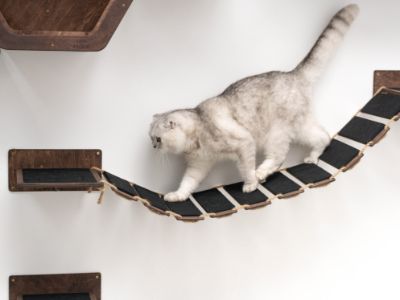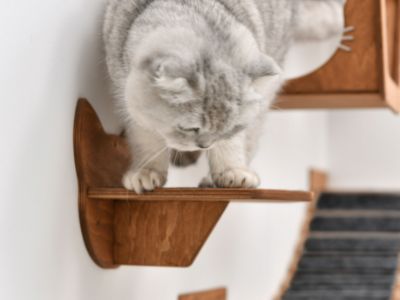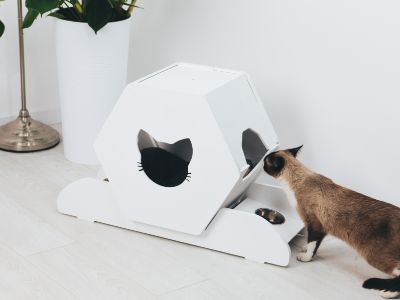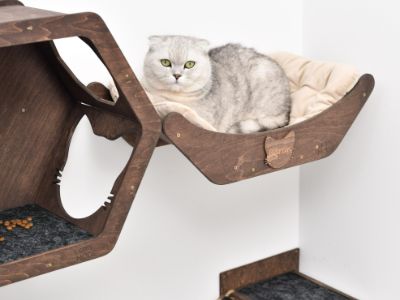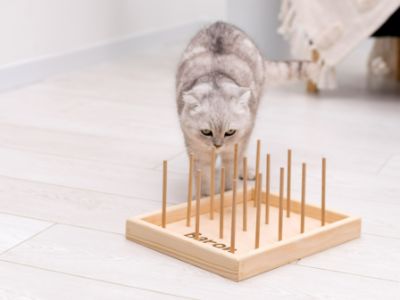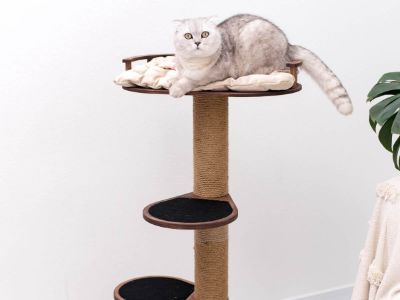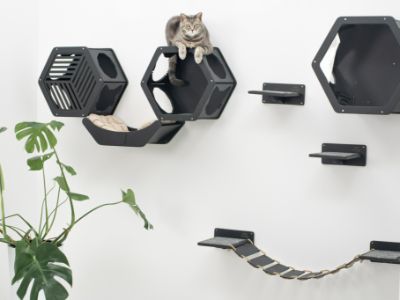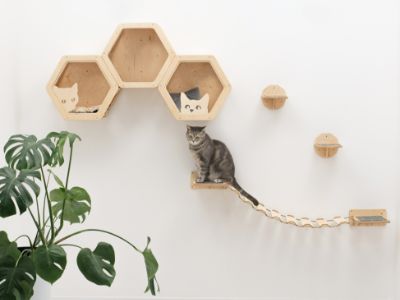How to Tell if Your Cat Is Depressed or Sad?
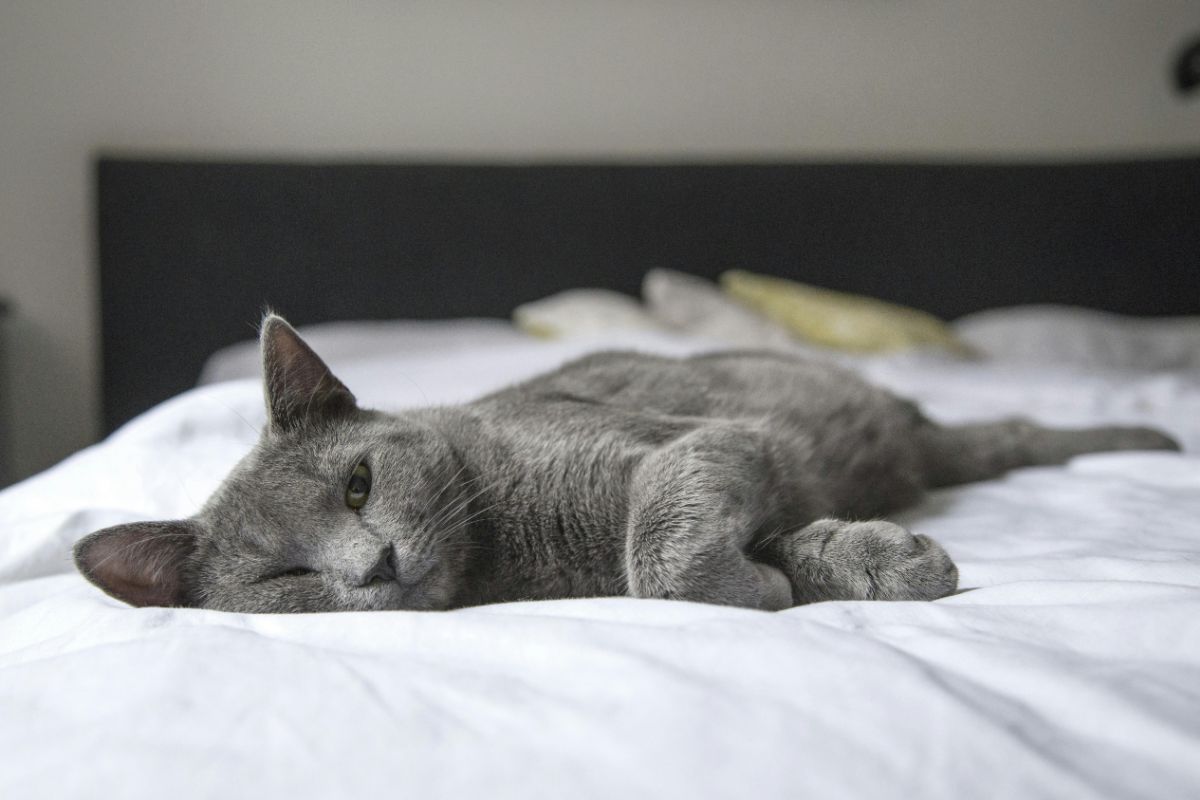
- How to Tell If My Cat Is Depressed: The Check List ✔️
- Changes in the Litterbox Routine
- Appetite Loss or Overeating
- Neglected Self-Care Routine
- Disinterest in Play
- The ’Meow’ Mode Is ON
- Sleep Deficit or Overdose
- Scratch, Scratch, Scratch
- Causes Behind Feline’s Depression
Independent, enigmatic, elegant, and always knowing their worth. Felines live their best lives without worrying about money, bills, career progress, and cellulite. What is this, if not idyll? However, according to the “Feline Anxiety Disorders: How to Understand and Treat Them” report by the reps of the College of Veterinary Medicine University of Georgia, animals ‘may become chronically anxious, a condition that can have many medical sequelae, as well as compromising the immediate welfare of the animal.’
We – eternal cat lovers at Cats Mode – decided to have a little talk on how to tell if your cat is sad, anxious, or even depressed. Even if your feline is happily fooling around the house, check out these early warning signs to provide timely care if needed.
How to Tell If My Cat Is Depressed: The Check List ✔️

Unfortunately, depression can develop or be facilitated by various factors like diet, genetics, moving into a new place, a new animal in the house, etc. Below, you’ll learn about the potential signs of depression in cats and how to help them.
Changes in the Litterbox Routine
If you wonder how to tell if a cat is sad, check their litterbox. In many cases, depressed tabbies tend to pee and poop any place but litterboxes. While the reasons behind such inappropriate routines may differ, anxiety and depression are 100% among them. Your bedroom, kitchen, or areas where they smell the scent of a missing human or a deceased fluffy fellow may become the hotspot for defecating or urinating.
Appetite Loss or Overeating
Many ‘parents’ asking themselves, “How do I know if my cat is sad?” should consider feline’s appetite. All changes in it should raise a red flag. For example, your fur kid eats less than before, they’ve lost their appetite, and feel completely disinterested even in their most favorite treats. As a result, cats lose weight. At the same time, overeating can also signal depression. Pay attention to both issues because not only depression but medical conditions as well may stand behind overeating or appetite loss.
Neglected Self-Care Routine
No other animal comes to mind when we talk about cleanliness. They groom themselves 30% – 50% of their waking time, which means if they neglect this routine, stress, sadness, or depression might be the reason. That’s probably something that we have in common with felines since lowered motivation for self-care is one of the symptoms associated with depression in humans. If you notice your four-legged friend looking messy and untidy, consider it a sign of pain, disease, or depression. Do not hesitate to contact your vet! They will tell you how to know if cat is depressed and provide treatment immediately.
Disinterest in Play
At our Cats Blog, we have some tried and tested recommendations on how to entertain a meower. However, if your usually playful tabby is not interested in their toys and typical pastimes, depression may be in the game. Any other abnormal behavior should be considered, too. If your usually friendly feline doesn’t feel like interacting with the members of your family, avoid usual leisure activities even after some stimulation – they may be stressed or even depressed.
The ’Meow’ Mode Is ON
A lot of fur babes get more vocal than usual in order to express their emotions. Take into account all the changes that can be in this behavior – it may be the signal that something is wrong. How to tell if a cat is depressed if they are usually quite vocal by nature? You know your feline better than anyone else – you can tell! Is your pet more vocal? Or, perhaps it’s more silent than usual? Something is wrong. Pay attention to how they purr, too. It’s not necessarily about being happy but can signal pain or sadness.
Sleep Deficit or Overdose
One of the most effective tips on how to know if your cat is depressed is to study their ZZZ routine. It is not a secret that mousers sleep a lot. That is why it is easy to notice when something changes. A sad or depressed feline may sleep less and become restless. At the same time, it may sleep more than usual. Plus, the sadness can be caused by changes in their nap spot. If they can’t find their favorite pillow, stress may kick in sooner than you know. It is recommended to get plastic or wooden cat houses and install them in a place that will remain unchanged.
Scratch, Scratch, Scratch
How to tell if your cat is depressed? Look for the claw marks on your stuff. When sad, stressed, anxious, or depressed, el gato may start scratching here and there. All the objects may be under attack, from your new sofa to the pile of clothes, suitcases, and so on. They’re trying to combat stress and mark the territory that belongs to them.
Causes Behind Feline’s Depression

Photo by Gustav Fring from Pexels
Now you’re fully aware of the answers to the “How to know if my cat is depressed?” questions. It’s time to get a better idea of potential reasons why your buddy may be feeling down. Regardless of your current situation, it’s crucial to take your pet to regular vet checks to see if any behavioral changes are happening or might happen.
- Your mouser is sick. When in pain or being sick, cats may suffer from depression. If you suspect your fluffy buddy is in discomfort or pain – see the vet ASAP!
- The kitty is grieving. If your family is experiencing the loss of a family member (or, perhaps, someone moved out), chances are your feline is suffering too. The pet will get back to normal with time.
- Missing an animal companion. If there was another animal in the house, and it passed away, your tabby may feel depressed. Try to get a new friend for your baby (and your family as well); however, be careful and do not hurry. Time will heal you all.
- The pet is injured. And because of that, cats can’t move, play, and prey the way they did before. This, as a result, affects mood.
Environment changes. Are you moving to a new place? Keep in mind that your purring companion may experience anxiety and depression (just like you!) caused by this major change.

Photo by Michael Glazier from Unsplash
First, we just get a companion, and sooner than we know, they become family members.
And who leaves family members in trouble? Talk to a professional ASAP if you see symptoms that did not previously exist.

